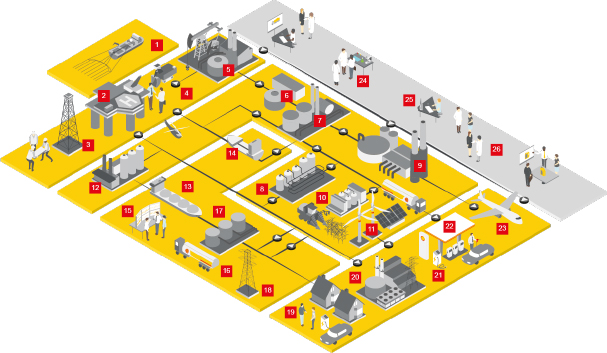Argentina
166 Employees
-
Third-party revenues
$203,610,685
-
Related-party revenues
$6,370,147
-
Total revenues
$209,980,832
-
Profit before tax
$(240,462,518)
-
Tax paid
$0
-
Tax accrued
$0
-
Tangible assets
$1,695,393,602
-
Stated capital
$1,844,547,775
-
Accumulated earnings
$(882,586,404)
Main Business Activities
- Upstream
- Chemicals
- Trading and Supply
- Other support activities
Shell has been present in Argentina since 1914. Shell performs upstream activities in the Neuquén basin, where it operates four blocks and participates in three blocks operated by other companies. Shell also has an interest in a block in the province of Salta. In January 2020, Shell and the Norwegian oil company Equinor acquired a company that holds a substantial interest in a major block, Bandurria Sur, operated by YPF, Argentina’s national oil company. Shell also has exploration activities in two offshore blocks in the Cuenca Argentina Norte basin (South Atlantic) with Qatar Petroleum.
In 2018, Shell sold its Argentinian downstream business to the Raízen Group, which is a joint venture between Shell and the Brazilian company Cosan. The Shell brand continues to be present in the country through a brand licence agreement with Raízen.
Country Financial Analysis
The statutory corporate income tax rate in Argentina was 30% in 2020 but rose to 35% in June 2021. This higher rate will continue to apply.
Shell’s upstream activities reported losses because of exploration and development costs incurred mainly in the Neuquén basin. COVID-19 also pushed down domestic and export prices and this contributed to lower profits. As a result, no tax is owed.
Our Payments to Governments Report for 2020 also shows that Shell paid around $22 million in royalties and fees.








